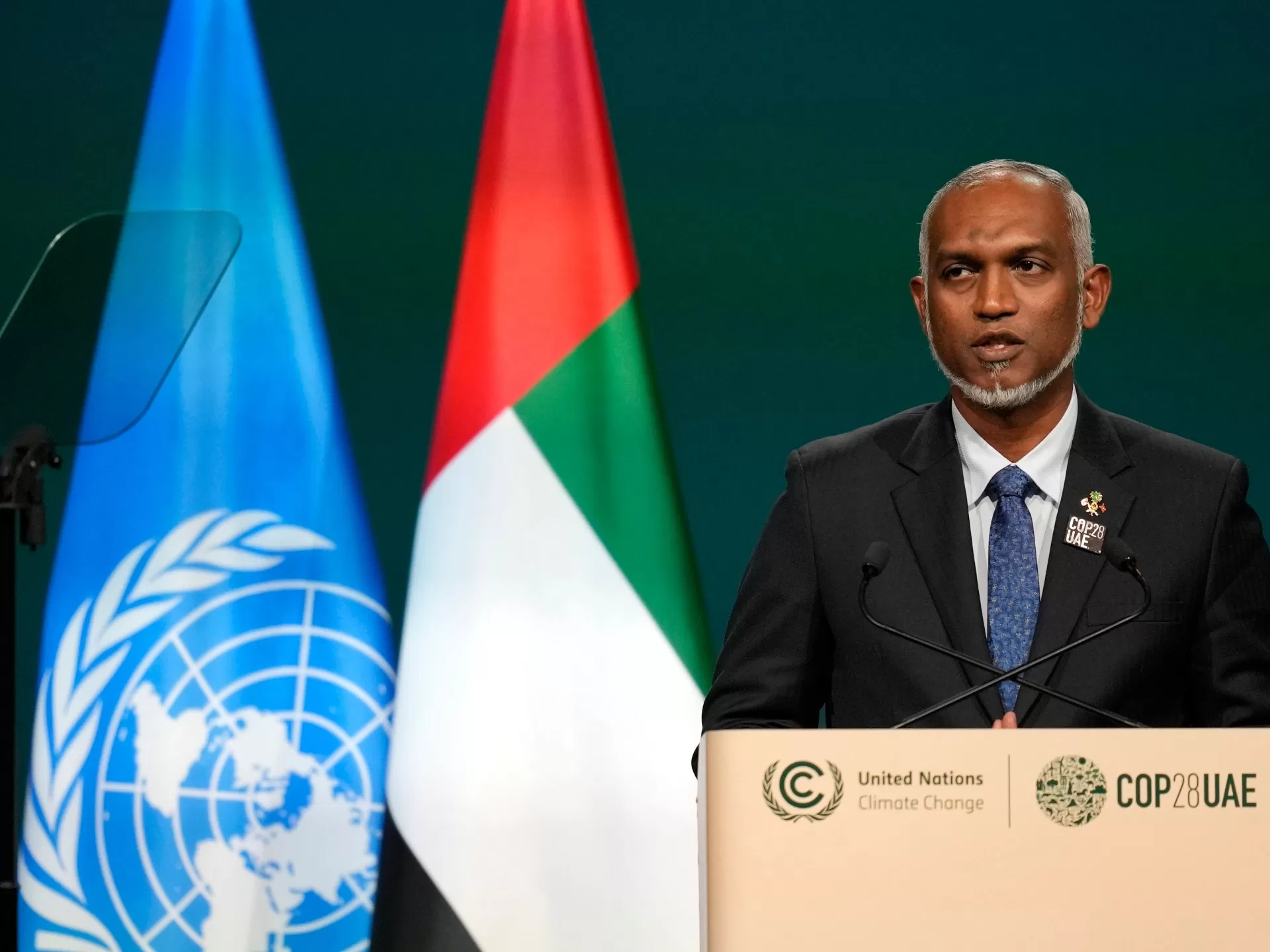The Indian Ocean archipelago’s ban comes in solidarity with the besieged people of Gaza facing unrelenting attacks and mass hunger.
President Mohamed Muizzu has “resolved to impose a ban on Israeli passports”, a spokesman for his office said in a statement, without giving details of when the new law would take effect.
Muizzu also announced a national fundraising campaign called “Maldivians in Solidarity with Palestine”. Nearly 11,000 Israelis visited the Maldives last year, which was 0.6 percent of total tourist arrivals.
Official data also shows the number of Israelis visiting the Maldives dropped to 528 in the first four months of this year, down 88 percent compared to the corresponding period last year.
Opposition parties and government allies in the Maldives have been putting pressure on Muizzu to ban Israelis as a sign of protest against the Gaza war. At least 36,439 Palestinians have been killed and 82,627 wounded in the conflict since October 7.
‘We’re good’
The Maldives lifted a previous ban on Israeli tourists in the early 1990s and moved to restore relations in 2010. However, normalisation attempts were scuttled following the toppling of President Mohamed Nasheed in February 2012.
In response to the ban, an Israel foreign ministry spokesman urged citizens currently in the Maldives to depart. “For Israeli citizens staying in the country, it is recommended to consider leaving, since if they fall into distress for any reason, it will be difficult for us to help.”
Israeli passport holders have also not been allowed to enter Algeria, Bangladesh, Brunei, Iran, Iraq, Kuwait, Lebanon, Libya, Pakistan, Saudi Arabia, Syria, and Yemen.
In a post on X in March, the State of Israel said: “We’re good,” in response to a post about these countries’ entry bans, which had been in place prior to the onset of the ongoing war in Gaza.
We’re good pic.twitter.com/GmiwEzZGck
— Israel ישראל (@Israel) March 14, 2024
